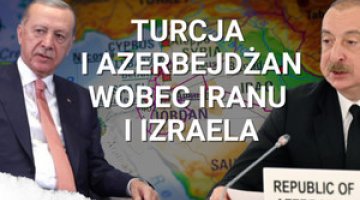Internet users versus Azerbaijan’s authorities
On 12 January, at Fountain Square in the centre of Baku, an illegal protest against violence in the military was held. The demonstration was attended by several hundred people, under the slogan of ‘Stop death in the army during peacetime’; they called for accountability for the military authorities and the resignation of the long-time defence minister Safar Abilov.The immediate impulse for the demonstration was the death of an 18-year-old soldier who, according to the official version, died of a heart attack; but the photos of the body released by the family show many traces of beatings and suggest fatal levels of abuse. The case has disturbed the public in Azerbaijan, the more so as the government’s reaction has so far been limited to the demotion of several officers connected to the case. During the protest, which was observed by the OSCE and representatives of foreign embassies, the security forces arrested dozens of people, of whom 21 were fined between €250 and €500.
Commentary
- The protest was not purely political in character; the opposition political parties existing in Azerbaijan, who have little support, distanced themselves from it. It was organised from the bottom up by five young activists, mostly using Facebook; their initiative was supported by about 20,000 people. This was the first significant demonstration in Baku since demonstrations linked to the so-called ‘Arab spring’ (2011), and is a testament to the activity of the young middle-class generation. The protest also attracted much attention from middle-aged people who do not use social media. The case of abuse in the military affects the broader public in Azerbaijan because of the general obligation to do military service, and during the demonstration slogans were used which were not political.
- Although in authoritarian Azerbaijan, which is ruled with an iron fist by President Ilham Aliyev, the political opposition does not represent a significant force which would be capable of organising protests, there is great potential for discontent among society. Moreover, those dissatisfied with the authorities’ actions have found it relatively easy to organise protest actions with various backgrounds. Examples of such activities are demonstrations by Muslim communities against the ban on wearing the hijab (several have taken place since autumn 2011); demonstrations in Quba against the activities of the governor, as a result of which the President dismissed him from office (March 2012); and against the demolition of houses in the suburbs of Baku by the state oil company SOCAR (spring 2012).
- This type of protest, taking place a few months before elections which the current president Ilham Aliyev is the favourite to win, poses a challenge for the authorities, who are convinced of their control of the general public and social media. The government is counting on a smooth and peaceful electoral process, as well as the confirmation of Aliyev’s social legitimacy. The elite is also depending on an improvement in Azerbaijan’s international image, which a New Year amnesty covering several imprisoned journalists was meant to assist. However, the social revival before the elections and the threat of protests could lead the authorities to make nervous moves, and to an escalation of tension between the people and the government. This may interfere with the re-election process, and harm the country’s image on the international stage.





